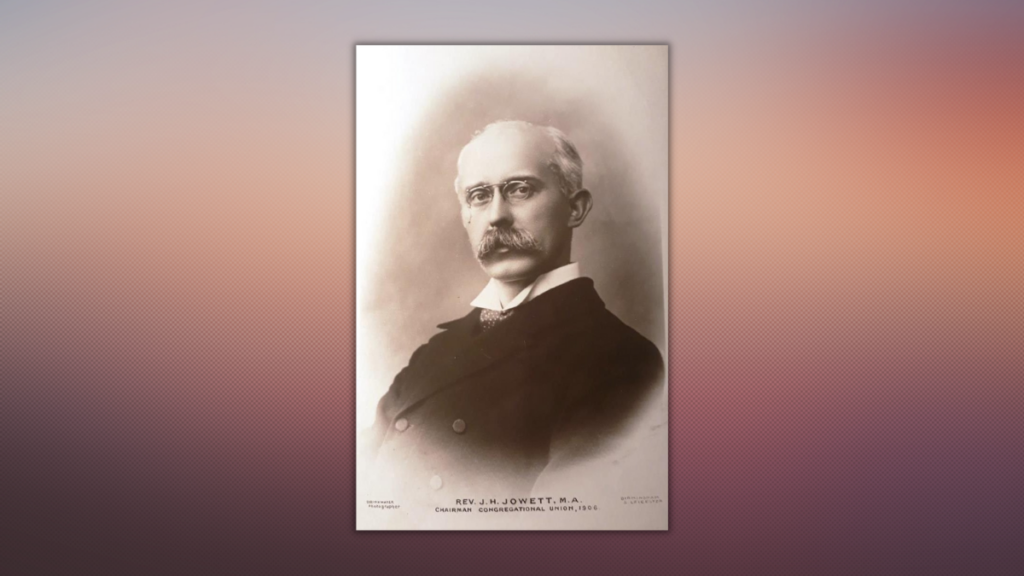By Gene Mason
Leadership Ministries Minute
Learning to “read the room” is a crucial facet of leadership (and it requires) emotional intelligence.
Known as your EQ, emotional intelligence is, according to VeryWellMind, “the ability to perceive, interpret … and use emotions to communicate with and relate to others effectively and constructively.”

In other words, are you able to discern … how others are perceiving or reacting to you?
VeryWellMind goes on to explain that those with emotional intelligence may possess:
- An ability to identify and describe what people are feeling.
- Self-confidence/self-acceptance.
- An awareness of personal strengths and limitations.
- The ability to let go of mistakes.
- An ability to embrace change.
- A strong sense of curiosity, particularly about other people.
- Feelings of empathy and concern for others.
- Showing sensitivity to the feelings of other people.
- Accepting responsibility for mistakes.
- The ability to manage emotions in difficult situations.
Emotional intelligence is a spiritual quality as well as a leadership quality. The Proverbs speak heavily on our speech and wisdom as important factors for leaders.
[Scripture points to] the importance of EQ in managing and building healthy relationships. This is for all of life, but with respect to work and leadership, a healthy amount of emotional intelligence guides our actions and helps us to focus on wise words, wise choices and reserved and helpful actions.
How to develop your EQ:
- Think carefully about your actions.
When you act, consider if what you are doing is helping or hindering the situation, and what your actions may be communicating to those around you. An emotionally intelligent leader’s demeanor should always be calm, collected, thoughtful and observant.
- Harness and manage your emotions.
To have emotions is a part of being human. To act or react based on them, or to let them govern your actions, is a sign that you lack emotional intelligence. Emotional intelligence is … responding with kindness, gentleness, self-control.
- Under stress, consider the bigger picture.
An emotionally intelligent leader is observant not only of others, but of his ultimate goal in light of present — especially difficult — circumstances. If you are able to keep larger goals in mind through stressful moments, you’re also able to have empathy for others. …
You cannot develop emotional intelligence if you are constantly thinking only of yourself. EQ takes an others-first mentality.
Joy is greater than happiness
Many people spend their entire working life reaching for what they want, only to find it is not enough.
It is only when we lay aside our chasing after what we think will bring success and happiness, that we can find joy, peace and a greater success than this earth can give.
Things to consider:
- Am I chasing after my dreams or what God created me to be?
- Am I living for one of those fleeting moments of happiness or for those awe-inspiring God moments?
- How many of the items on my calendar this week are to help someone else rise above their apparent circumstances and not about me and my personal life?
- Is accomplishing my goals as pleasing to God as it is to me?
George Yates
Church health strategist
“A fool gives full vent to his spirit, but a wise man quietly holds it back.” —Proverbs 29:11
“There is one whose rash words are like sword thrusts, but the tongue of the wise brings healing.” —Proverbs 12:18
“Whoever is slow to anger is better than the mighty, and he who rules his spirit (better) than he who takes a city.” —Proverbs 16:32
“Do not withhold good from those to whom it is due, when it is in your power to do it.” —Proverbs 3:27
“Trust in the Lord with all your heart, and do not lean on your own understanding.” —Proverbs 3:5
“But be doers of the word, and not hearers only, deceiving yourselves.” —James 1:22
“Be kind to one another, tenderhearted, forgiving one another, as God in Christ forgave you.” —Ephesians 4:32
“Set your mind on the things above, not on the things that are on earth.” —Colossians 3:2
Life past 70 years old is a gift; don’t complain. Your body comes with a lifetime warranty, guaranteed by your Creator God.
Be grateful for the time given us to work on sanctification. Don’t resent growing old. Many are denied the privilege.
The aging process is part of God’s beneficence, loosening our grip and focus on things of this world (idolatry), giving us fair warning that our end is coming, and thus providing the opportunity to prepare.
Which of the prophets and great men of God did He allow to continue in ministry indefinitely? Are you or your ministry greater than they or theirs?
We may be old, feel old and look old, but we don’t have to think old or act old. Aging is not a time for retirement, slowing down or rest. Don’t capitulate. There is much to be done. Find your God-supported niche, and work at it.
Bob Cosby, M.D.
Birmingham
The people to whom we minister and speak will not recall 99 percent of what we say to them. But they will never forget the kind of persons we are. … The quality of our souls will indelibly touch others for good or for ill. So we must never forget that the most important thing happening at any moment, in the midst of all our ministry, is the kind of persons we are becoming.
Author Dallas Willard
Examine the nature and quality of your relationships. Are you more loving, more compassionate, more patient, more understanding, more caring, more giving, more forgiving than you were a year ago?
Author Robert Mullholland
For physical training is of some value, but godliness has value for all things.
1 Timothy 4:8
“Yesterday is history, tomorrow is a mystery, today is a gift,” she’d chant to herself as she brushed her teeth. “It’s not happy people who are grateful, it’s grateful people who are happy,” she’d say as she brushed her hair. … In a world where you can be anything, be kind. … Then he’d discovered that routines were crucial. They created buoys he could cling to to keep himself afloat.
Author Clare Pooley
“The Authenticity Project”
I’ve read books promising hacks to kick my digital addiction. None helped. Then I picked up Samuel D. James’ “Digital Liturgies.” It offered no hacks. Instead, it shows how the social internet habituates vice and emotivism. It made me sick of Twitter and hungry for God.
Without much effort I found myself on [social media] less. I discovered that Samuel’s warnings re: how deeply digital tech shapes our pace, attention, presence and holiness … were spot on.
If you’re trying to move beyond tips and tricks and wrestle with the more profound ways digital liturgies shape what we love and who we are … then I recommend picking it up.
@Patrick K. Miller
X (formerly Twitter)
Patrick Miller is a cultural commentator, author and pastor. He hosts the Truth Over Tribe podcast.
God bless all of us old people
By Pastor Michael J. Brooks
Siluria Baptist Church, Alabaster
I suppose it depends on who’s defining “senior,” but AARP says 55+. Accordingly, some of us find ourselves in that category — even more sobering when we learn that we’re a young nation with a median age of 38.
Some of us seniors are perpetually cranky, but most of us live with a good sense of humor. I found a list lately titled, “You might be old if”:
- You gain 10 pounds overnight.
- You’d rather sleep than go out.
- Everything hurts.
- Comfort comes before style.
- You have a favorite spatula.
- You also have a favorite burner on the stovetop.
- Everything feels like a chore.
- College students look like 12 year olds.
- You’re always annoyed.
Whether or not these items are accurate, most seniors do live with a sense of gratitude because we know life is fragile.
As the Bible says, “Your life is like the morning fog — it’s here a little while, then it’s gone,” (James 4:14). Thus, we’re grateful for each day.
Seniors also have the wisdom of accumulated years. I often think of the old adage about how to make good decisions. The short answer is that you make good decisions after making so many bad decisions and learning from them. It’s true: Seniors have wisdom garnered from mistakes, but also from life-long study.
Seniors are a valuable resource for our churches. Both the Old and New Testaments magnify the office of “elder.” These were the aged men who shared knowledge, helped in decision-making and decided court cases.
Seniors are a special group and a gift from the Lord.






Share with others: